You Can't See Them; You Can't Smell Them; But They Work!
Dr. Marty Becker, Pheromones
 Animal Radio® Veterinary Correspondent Dr. Marty Becker is back with the scoop on pheromones. Can the synthetically produced smell be helpful in calming cats and dogs, or is it a waste of money?
Animal Radio® Veterinary Correspondent Dr. Marty Becker is back with the scoop on pheromones. Can the synthetically produced smell be helpful in calming cats and dogs, or is it a waste of money?
Everyone has heard about pheromones by now, but just what are they? Dr. Marty Becker explains. He tells us that the first research done on pheromones was on ants. It was discovered that ants have an incredible mix of around 16 different pheromones that they can whip up. These are one of the primary ways that they communicate with each other. It is now known that our cats and dogs also secrete pheromones for many different reasons.
The most common pheromones in cats are the feline cheek pheromone. You might see your cat rubbing against the couch or even your leg. This is sort of like them putting the Good Housekeeping Seal of Approval on these items. This is done in the wild or in their environment for them to mark safe places. So if they need to escape quickly, they have marked a safe path.
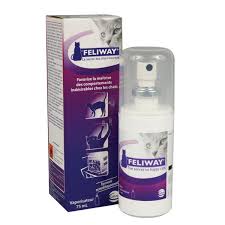 You can purchase synthetic pheromones for cats and there are lots of ways you can use them. You can purchase Feliway as plug-ins, sprays (great for their bedding) and even collars. You can use them individually or even all three types at the same time. Pheromones are great for a multi-cat household. You probably have a certain amount of litters and a certain amount of high perches, food and water, so you can use pheromones to create a calm atmosphere (think of it as having people get together and giving them each 3 glasses of wine!) between all of the cats. You can even use them for inappropriate elimination for a cat that looks out the window and sees the new cat in the neighborhood and starts marking your house. It is also great for car travel, if you have to take your cat to the vet's or on a long road trip. There are also special plug-ins that can be adapted to your car's 9-volt plug. You can even use them on your furniture. Perhaps you bought a new couch and your cat starts marking it. If you spray it with pheromones, your cat should leave it alone.
You can purchase synthetic pheromones for cats and there are lots of ways you can use them. You can purchase Feliway as plug-ins, sprays (great for their bedding) and even collars. You can use them individually or even all three types at the same time. Pheromones are great for a multi-cat household. You probably have a certain amount of litters and a certain amount of high perches, food and water, so you can use pheromones to create a calm atmosphere (think of it as having people get together and giving them each 3 glasses of wine!) between all of the cats. You can even use them for inappropriate elimination for a cat that looks out the window and sees the new cat in the neighborhood and starts marking your house. It is also great for car travel, if you have to take your cat to the vet's or on a long road trip. There are also special plug-ins that can be adapted to your car's 9-volt plug. You can even use them on your furniture. Perhaps you bought a new couch and your cat starts marking it. If you spray it with pheromones, your cat should leave it alone.
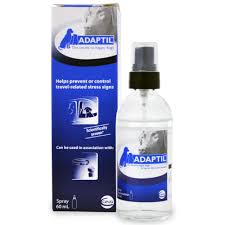 For dogs, there is Adaptil, which contain synthetic pheromones that mimic substances naturally produced by animal mothers to soothe their babies. A mother dog naturally secretes this hormone, which keeps these babies calmly nursing side-by-side all in a row. This synthetic pheromone is great for new puppies or when introducing a new dog into the household.
For dogs, there is Adaptil, which contain synthetic pheromones that mimic substances naturally produced by animal mothers to soothe their babies. A mother dog naturally secretes this hormone, which keeps these babies calmly nursing side-by-side all in a row. This synthetic pheromone is great for new puppies or when introducing a new dog into the household.
Dr. Marty Becker tells us that you can also get them in a wipe towelette form from your veterinarian prior to a vet visit. Before you bring your pet to the vet, you can wipe the carrier down, wipe your hands with it or wipe the leash. This will make a big difference to your pet.
Dr. Marty is a practicing veterinarian and admits that he wears pheromones while at work. He wears Feliway for cats on one side and Adaptil for dogs on his other side. The good thing is that they can't smell the other pheromones. This means that a cat can't smell dog pheromones and the dogs can't smell cat pheromones, and humans can't smell either one.
Just be careful when buying these pheromones. Make sure you purchase ones that have been clinically tested.
Dr. Marty Becker has assembled a dream team of almost 100 people in an advisory panel. This includes seventeen boarded behaviorists. Out of the seventeen, there are three that don't believe in these pheromones and say that enough research hasn't been done. This leaves about 14 of these people that believe in pheromones and their uses.
Dr. Becker has been practicing veterinary medicine for more than 30 years and is a best-selling author, syndicated columnist and a frequent guest on national shows. You can also find Dr. Becker on Vetstreet.com, a new animal health and lifestyle website dedicated to giving pet owners the most accurate information possible to keep their pets healthy and happy. Follow Dr. Becker on Facebook and Twitter.
http://www.drmartybecker.com
How The Quest For Status Has Harmed Man's Best Friend
Michael Brandow, A Mater of Breeding
 It's long been thought that mutts are much healthier, both mentally and physically, than those pure bred for pedigree. While there may be some truth to this, it is not always the case. Author Michael Brandow describes how the quest for status has harmed man's best friend.
It's long been thought that mutts are much healthier, both mentally and physically, than those pure bred for pedigree. While there may be some truth to this, it is not always the case. Author Michael Brandow describes how the quest for status has harmed man's best friend.
As a dog walker in Manhattan, Michael Brandow tended to some of New York's most desired pets, but increasingly his subjects began to include bulldogs whose muscles bulged so large they couldn't walk and Frenchies struggling to breathe.
Observing countless purebreds suffering everything from hip dysplasia to epilepsy to chronic vomiting and informed by recent studies documenting a rising number of breed-specific health problems, Brandow realized that centuries of inbreeding, fueled by a quest for social status, had become an animal health and ethics crisis.
The focus on Michael's new book, A Matter of Breeding, is about how we were taught to believe that we need so-called purebreds in the first place. It is a history of dog shows and how that came about and how dogs were standardized into commercial types, with their coat colors and their head shapes, in a sort of catalog selection we've come to be familiar with.
But let's not forget about the mutt. Most mutts are actually healthier than purebreds. A lot of people don't know about recent studies, for example, that show that Golden Retrievers are dying of cancer at a rate of over 60-percent in this country. This is major news, but a lot of people aren't aware of it. Maybe it's the power of denial, which is the subject of Michaels book, but he doesn't understand what could be strong enough to allow people to overlook that fact.
Why is this happening? Mainly because of inbreeding. The Golden Retriever, despite it's popularity and large numbers, would lead you to believe that you'd have more genetic diversity and better chances for better health. But with this addiction to lineage and aristocratic family background, it's one of the most closely inbred breeds.
 Animal Radio's Dr. Debbie states that she is a fan of both mixed breeds and purebreds. She feels that there is a place for purpose-bred dogs for some functions. Maintaining that line is an important thing so that we can make sure there is a predictability within a lineage, but she also agree with Michael that there is definitely an inheritance of genetic conditions in many purebreds. However, a recent study that was done two years ago out of UC Davis showed that 13 out of 24 genetic diseases were actually just as common in mixed breed and hybrid dogs as purebreds. So, we need to be a little bit careful when we say the mixed breed dog is superior in health because they still have those genetic markers, they just may be diluted and mixed in with some other things. You are not guaranteed that you are not going to get anything wrong with a mutt, you may actually get more things wrong.
Animal Radio's Dr. Debbie states that she is a fan of both mixed breeds and purebreds. She feels that there is a place for purpose-bred dogs for some functions. Maintaining that line is an important thing so that we can make sure there is a predictability within a lineage, but she also agree with Michael that there is definitely an inheritance of genetic conditions in many purebreds. However, a recent study that was done two years ago out of UC Davis showed that 13 out of 24 genetic diseases were actually just as common in mixed breed and hybrid dogs as purebreds. So, we need to be a little bit careful when we say the mixed breed dog is superior in health because they still have those genetic markers, they just may be diluted and mixed in with some other things. You are not guaranteed that you are not going to get anything wrong with a mutt, you may actually get more things wrong.
While Michael states that that study basically tied mixed breed and purebreds in 13 categories, purebreds still came out ahead in health problems in 10 of them and mutts were only higher for one. This means it's always dangerous to make blanket statements about mixed breeds versus purebreds. It says more about the industry that produces them than anything. Michael doesn't say that mutts are inherently superior to purebreds in health, but he does say that the chances are better getting a random bred mutt. He also states that mutts are inheriting a lot of the illnesses that purebreds have because of what's been done wrong with purebreds.
Dr. Debbie states that there are people who are actually breeding responsibly and are performing genetic screenings, including veterinary screenings for heart conditions, and are keeping registries. She respects these people who are trying to insure the health of future generations. This is a costly thing to do and takes a lot of time to insure that their offspring don't have genetic problems. She also thinks its horrible when people just throw two dogs together and let them breed. These are called 'backyard breeders,' who mainly do it for the money. But for people who are doing things right and trying to eliminate genetic diseases, they are helping everybody.
Michael states that you can't blame all of this on backyard breeders or even puppy mills. He has also seen many ill dogs from reputable breeders.
Bottom line is that people need to be more responsible so these dogs don't pay the price with devastatingly poor health.
With a background in journalism, dog care, and community activism, Michael Brandow is a sought-after commentator on dog-related issues and has written for publications including the New York Times, Town & Country, ARTNews, the BARk, and Animal Fair. He lives in New York City.
http://www.michaelbrandow.com
"HERO PEOPLE OF THE WEEK" - Alison Smith - Pet Pantry
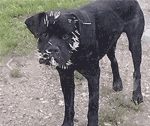 This week's Zeuterin Hero Person makes sure that those on welfare are able to feed their pets. The law doesn't allow welfare recipients to buy pet food with food stamps. Allison Smith started the Pet Pantry, supplying resources for strapped pet owners.
This week's Zeuterin Hero Person makes sure that those on welfare are able to feed their pets. The law doesn't allow welfare recipients to buy pet food with food stamps. Allison Smith started the Pet Pantry, supplying resources for strapped pet owners.
Anyone who knows Alison Smith will tell you she is the definition of an animal lover and for years she's been dreaming of a pet pantry. Alison runs a horse rescue, Triple H Miniature Horse Rescue, and was receiving calls about all sorts of animals, including cats and dogs, from people who were having a hard time making ends meets. She put the idea of a pet pantry on the back burner, because there are shelters in her area, and she felt people had resources available to them. But it wasn't until she met her dog last year, a dog that no one would help with, that it really kicked off. Alison rescued her dog Atticus after he was found starving, because he had a face full of porcupine quills.
Because of this, Alison finally decided to make her dream cone true and start a pet pantry in her state. Atti's Eats is not just a pet pantry. Alison also collects pet supplies like leashes, collars and beds. Everything collected is offered to the public who might be facing hard times, whether it's illness or being unemployed.
People seem to forget about when others are suffering financially, that it affect everyone in the household, including the pets. And while there is assistance available to people in hard times, such as welfare and food stamps, they do not allow you to purchase pet food.
 "We feel like it would be silly to have people who have pets that are loved and have homes have to surrender them because they have a temporary hardship, and take up a space in shelter where other dogs like Atticus or worse need those spaces and they're not available," Smith said.
"We feel like it would be silly to have people who have pets that are loved and have homes have to surrender them because they have a temporary hardship, and take up a space in shelter where other dogs like Atticus or worse need those spaces and they're not available," Smith said.
Atti's Eats has made it so you no longer have to decide whether to feed yourself or your pet. You can also buy your medication without worrying about whether or not your pet is going to eat. These people need to have a safety net of some sort and Alison hopes to be that net.
Atti's Eats is located in Bismark, North Dakota and Alison says they are always in need of volunteers to help distribute food across the state. They also have 3 sites in Bismarck for people to drop off donations, at Tractor Supply Co., Western Unlimited and Animal Kingdom.
Monetary donations can be written out to Atti's Eats, all donations are tax deductible.
http://www.attiseats.com
Thinking Globally. Acting Locally. Do you know someone that should be nominated for our Hero Person of the Week? Send us an email to: YourVoice@AnimalRadio.com.

Animal Radio's HERO PEOPLE is brought to you by Zeuterin a safe, permanent and virtually painless alternative to surgical castration.
 The Dogfather's Grooming Tip with Joey Villani
The Dogfather's Grooming Tip with Joey Villani
How to Remove That Urine Smell From Your Pet
There are both cats and dogs that have a hard time, whether it's because of age or medical reasons, that can't hold their urine. It is hard enough to keep your carpets clean, but worse, pets are getting urine all over themselves. The odor then soaks into their coat or fur, and you can't get rid of the smell on them. But you can breath a sigh of relief (and fresh air) because there is something you can easily do, which is also cost effective.
It is commonly known that white vinegar cleans up urine smell, but most people don't know that you can also use this on your pet. This will neutralize the bacteria and get rid of the smell.
Odor is a bacterium that causes odor. That bacterium grows, allowing you to smell an odor. But with urine, you need to break it down enough so you can kill the bacteria. White vinegar will neutralize it and break it down.
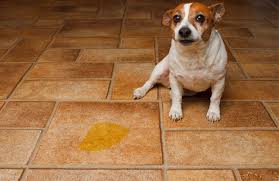 Don't use white vinegar straight on your pet, as it might not be comforting for your pet's skin. It will also not smell any better, unless you like the strong smell of vinegar. You need to make a mixture. Start with distilled water. This is because the properties in distilled water lasts a little longer, and it won't break down as quickly and spoil as fast as tap water. Next, take a half of a cup of white vinegar and 1/8 of a cup of baking soda and mix it into the distilled water. The baking soda, mixed with the vinegar, will help break down the urine.
Don't use white vinegar straight on your pet, as it might not be comforting for your pet's skin. It will also not smell any better, unless you like the strong smell of vinegar. You need to make a mixture. Start with distilled water. This is because the properties in distilled water lasts a little longer, and it won't break down as quickly and spoil as fast as tap water. Next, take a half of a cup of white vinegar and 1/8 of a cup of baking soda and mix it into the distilled water. The baking soda, mixed with the vinegar, will help break down the urine.
You can then either spray it on or sponge it on your pet. If you do spray it on, it is best to then use a sponge or cloth to wipe it off so it is not tacky. Let it dry and brush it through. This should remove the urine smell.
If you still smell urine, you can do it over again. Plus, if your pet can't hold his urine, they may urinate on themselves several times a day, requiring another treatment. You can repeat this as much as you need to and it won't irritate your pet's skin, and will actually keep them comfortable, as we're pretty sure they don't like the smell either! You can even use this mixture on your floors.
 Dogs Get The Flu Too - Canine Influenza - Dr. Debbie
Dogs Get The Flu Too - Canine Influenza - Dr. Debbie
Can you give your dog the flu, or catch it from him? No way. But dogs can become infected with their own strain of canine influenza. With much attention on the tough human flu season, it's a good time to talk about the differences, and similarities, between human and canine influenza.
What is Dog Flu?
Canine Influenza, also known as H3N8, is a relatively new dog virus identified in 2004.The disease mutated from a strain of the equine influenza virus and was first detected in racing greyhounds. Canine influenza has migrated across the country and infections have been detected in 39 states, with heavy reports in recent years in New York, New Jersey, Florida and Colorado. However, some areas of the country have yet to report a single case of canine influenza.
Although the human flu peaks in winter seasons, canine influenza doesn't show seasonality; rather dogs can acquire canine influenza all year round.
The Illness
A dog sick with canine influenza develops respiratory infection signs similar to kennel cough that last three to four weeks. Symptoms include coughing, gagging, sneezing, runny nose and high fevers up to 104-106 degrees. Normal dog temperature ranges 101-102 degrees Fahrenheit.
Most dogs infected with canine influenza will get sick and recover. But like the human flu, fatalities can occur. Approximately 5-percent of canine influenza infected dogs may die, usually to secondary pneumonia. Older pets, pups, or those with chronic illness are more likely to develop pneumonia than the average healthy dog.
There isn't a specific treatment for dogs infected with canine influenza, but most dogs recover with supportive care including good nutrition, rest and maintaining adequate hydration. Severely ill pets with secondary bacterial pneumonia may be hospitalized and treated with IV fluids and antibiotics.
 Dog Flu Transmission
Dog Flu Transmission
Dog flu is similar to human flu in that it is spread by aerosol transmission as well as through contact with contaminated items. Since dogs don't cover their cough or sneezes, the virus is easily carried through respiratory droplets to other dogs and items in the immediate area. Any place that canines frequent, or spend time around, can become contaminated by infected dogs - that includes water bowls, surfaces and even human hands.
What do you do if you notice your dog's play pal is coughing, sneezing and has a runny nose? Separate your dog immediately and closely monitor your dog for symptoms for 7 days - the time it takes for symptoms to appear after exposure to the virus. If symptoms develop, call your veterinarian.
Pass that timeline and you are probably fine. But don't forget that 10 to 20-percent of infected dogs will shed the virus, but never show any symptoms of illness. These apparently healthy carriers can go on and spread the infection to other dogs without ever becoming ill.
Vaccination and Prevention Steps
A vaccine, produced by Merck, is available through veterinarians for canine influenza. But just like the human flu vaccine, it doesn't guarantee your dog CAN'T get sick. However the vaccine is helpful in decreasing the severity of infection and decreasing the spread of virus.
Vaccination for canine influenza isn't recommended for every dog at this time. Lifestyle and geographic location influence an individual dog's risk of acquiring canine influenza. Dogs that frequent high-density dog areas are at increased risk of canine influenza and are candidates for vaccination. So if your dog goes to areas like the dog park, trainer, groomer or boarding facility, ask your veterinarian if vaccination is a good idea.
Don't think you have to keep your dog locked in the house forever to hide from canine influenza. For most dogs, the risk of contracting canine influenza is quite small. Good sense and preventative steps are useful to avoid dog illness. These include quarantining new or sick dogs, using good hygiene through disinfection and hand washing and avoiding unnecessary contact with suspected infected dogs, especially if your dog is young, old, or has a compromised immune system.
What Should Pet Owners Do?
Flu awareness and preparedness makes good sense - for both people and pets. But remember that there are other causes of canine respiratory disease. So just because you hear a cough doesn't mean your dog has the flu. Ask your veterinarian about your pet's individualized risks for acquiring canine influenza.
For more information about canine influenza visit the CDC (Centers for Disease Control and Prevention) or Merck.
Featured veterinarian known as "Dr. Debbie" on national pet radio program, Animal Radio. Ebook author of "Yorkshire Terriers: How to Be Your Dog's Best Friend"; "Pugs: How to Be Your Dog's Best Friend"; "Mini Schnauzers: How to Be Your Dog's Best Friend"; and "Shih Tzu: How to Be Your Dog's Best Friend."
http://www.drdebbie
It's a Wacky Wednesday Here at the Animal Radio® Studios
WackyWed Contest IS ON - LIKE your FAVORITE pic and the three pics with the most LIKES & SHARES are this week's winner will receive the Rotator Powered Lift Away Vacuum from Shark.
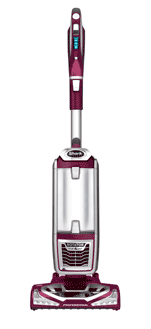 TO ENTER Send us your FUNNY pet pic to WackyWed@AnimalRadio.com - (Please put WACKYWED in the subject line & give us your pet's name, your name & where you hail from) If YOUR pic is chosen then spread the word to your friends & family on Wednesday - the pics w/the most LIKES and SHARES will be the winner!
TO ENTER Send us your FUNNY pet pic to WackyWed@AnimalRadio.com - (Please put WACKYWED in the subject line & give us your pet's name, your name & where you hail from) If YOUR pic is chosen then spread the word to your friends & family on Wednesday - the pics w/the most LIKES and SHARES will be the winner!
This week we are giving away the Rotator Powered Lift Away Vacuum from Shark. It's like three vacuums in one with the Powerful Upright, Lift-Away Pod with Powered Brush Roll and Convenience Canister with Caddy.
Shark - A pioneer in innovative cleaning solutions and small household appliances with the goal of giving today's busy consumer better and more efficient products that fit their lifestyle.

Join Animal Radio® on Facebook for Wacky Wednesday! Win great prizes every week for your wacky pet pictures. Last month we gave out goodies from PetKeeper Secrets, Bergan, Central Garden and more. Visit us on Facebook now.
 Animal Radio® News - Tammy Trujillo
Animal Radio® News - Tammy Trujillo
What Does Coffee And Butter Have To Do With Pet Food?
JM Smucker, the huge company behind Smucker's Jam and a lot of other products, is buying Big Heart Pet Brands for $5.8 billion dollars. Big Heart makes Meow Mix, Milk-Bone, Pup-Peroni and Kibbles 'n Bits. It's not the first time that a people-food company has bought a pet-food maker. Last year, the candy company Mars bought Iams and Eukanuba, adding to its pet-brand portfolio that already included Whiskas and Pedigree. Nestle makes all kinds of products and is the company behind Purina. These mega companies know a good deal when they see it. Since the year 2000, the sale of pet food nationwide has nearly doubled, hitting $22-billion dollars in receipts last year. The American Pet Products Association says $10-billion of that was spent on the pricier so-called premium lines of dog and cat food. A consumer survey last year found that nearly 4 out of 5 pet owners said the quality of their pet's food was as important as their own.
 Can A Duck Be a Therapy Animal?
Can A Duck Be a Therapy Animal?
We've heard of dogs and cats helping former military members deal with Post Traumatic Stress Disorder (PTSD), but for former Ohio National Guardsman Darin Welker, it's his ducks that do the trick. We've been following his story since he was convicted of a misdemeanor and fined $50 for keeping 14 ducks at his home in West Lafayette. He's given some of them away, he's now down to six birds, and is appealing his conviction and fine. Welker served in Iraq and was medically discharged from the Guard. He says the ducks maintain a calm environment and that is what he needs to deal with his PTSD. The town council though says he hasn't presented enough evidence that the ducks serve a medical need and that he would face imminent harm without them. Local laws have recently been amended to allow two therapy pets, but Welker's six would still be illegal under the law and the council also says that ducks aren't considered 'therapy animals'.
 Man Finds Missing Dog 18 Months Later While Searching For New Dog
Man Finds Missing Dog 18 Months Later While Searching For New Dog
Richard Brower's beloved German Shepherd, Dozer, was stolen out of this backyard 18 months ago. He looked everywhere. His motorcycle-riding buddies hit all the dog parks and even stopped people walking German Shepherds on the street looking for Dozer. Nothing. After a year-a-half, Richard decided to share his home with a new dog. He did an online search for 'German Shepherds For Sale,' which led him to the local animal rescue and right there was Dozer. The reunion had everyone crying, Richard, his sister and parents and even Dozer. Richard says the 125-pound dog came flying to him, put his head in his arm and started doing that wailing thing that German Shepherds do. Dozer had been at the shelter for about a month, where he'd been for the rest of the time he was missing is anyone's guess.
Tax Breaks For Pet Owners
It's that time of year again, time to start thinking about getting the taxes done and your pet might come in handy. Of course your cat is always available to help sort papers of lay down on them so they don't get moved, but there really are some more financially practical ways they can help your bottom line. For example, guide and guard dogs are potential write-offs, if pets figure into your profession, like you race them or have show animals, some of the expenses associated with caring for the animals can be deducted. If you foster pets, a portion of the cost of their food and care can be written off. And here's an interesting one, you can write off some tax dollars if you set up a trust for your pet. Financial website Bankrate spoke with a law professor who said most states allow pet trusts.
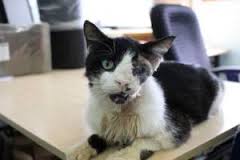 Zombie Cat In Custody Battle
Zombie Cat In Custody Battle
Last week, we had the story of Bart the cat that was hit by a car and buried but was actually still alive. Bart dug his way out and made it to his neighbors yard. He was badly hurt, but is recovering amazingly well at The Humane Society of Tampa Bay in Florida. Bart is now officially, and fondly known, as the Zombie Cat. If you think his story couldn't get stranger, think again. A few days after he arrived at the Humane Society, the group decided not to return Zombie Cat to his original home. His previous person had not only buried him, but had been unable to pay for his medical care afterwards. Now the center has had to put on extra staff after getting a call that some people were going to storm the building and take the cat. The police are also keeping an eye on the situation. The Humane Society intends to put Zombie Cat up for adoption, but his recovery will still take many months before that can happen.
 Check In at Hotel - Check Out With A New Dog
Check In at Hotel - Check Out With A New Dog
If you stay at one hotel in North Carolina, you may end up meeting a new friend. A rescue called Charlie's Angels has teamed up with Asheville's Aloft hotel, which was already a dog friendly hotel. A volunteer brings an adoptable dog and they greet people as they come into the hotel. If someone falls in love, they can put in an application to adopt that dog. There's also a short waiting period so people really think it through and don't adopt on a whim. So far, some 20 dogs have found new homes through the hotel program. The program gives the dogs a chance to get out of the confines of a shelter, relax and really show their personalities. It's an idea that's catching on. One rescue out of Los Angeles has taken adoptable dogs for meet 'n greets at a retro clothing store.

NEWS UPDATE brought to you by Drs. Foster & Smith, affordable pet supplies. Low prices every day, so you save on every order.
 Listen to the entire Podcast of this show (#794)
Listen to the entire Podcast of this show (#794)





